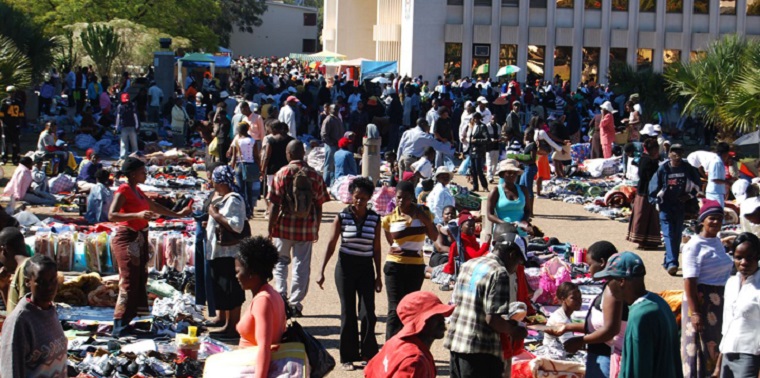ZIMBABWE mining sector has been recognized as one of the thematic sectors to revive the economy and issues of management as well as accountability matters, thus it is imperative that the country joins the Extractive Industries Transparency Initiative (EITI).
EITI seeks to identify, collect and publish key information to strengthen governance of oil, mining and gas sectors by increasing transparency over revenues.

Speaking to The Entrepreneurial Magazine, Zimbabwe Environmental Law Association (ZELA) economic governance officer, Tafara Chiremba emphasized on the adoption of EITI stressing on lack of transparency issues surrounding the granting of licenses, negotiations of contracts, production of data, the collection allocation, expenditure and accounting of mineral revenue.
“Lack of transparency in the awarding of contracts and private sector investment deals, contract monitoring and tax incentives that mining companies are being awarded, poor mining contract performance, corruption and gold smuggling among other issues continue to cripple the country’s efforts to leverage on its mineral resources to deliver development,” Chiremba said.
“On several occasions, the government has been indicating that a lot of revenue is being lost through smuggling.”
The smuggling of gold, Zimbabwe’s top foreign currency earner, is estimated to cost Zimbabwe $1.5 billion in lost revenue per year, according to the International Crisis Group therefore, there is urgent need to put in place decisive measures to plug the loopholes.
Most of the precious metal is siphoned off by informal small-scale miners who sell their findings to illicit gold traders rather than government-appointed officials.
“The artisanal mining sector continues to be dogged by challenges emanating from lack of regulatory framework that should govern mining rights and mining activities,” Chiremba added.
He stressed the observable correlation between the mining sector and economic growth patterns coupled with projections, as well as the evident disconnect between mining sector performance and service delivery.
“Generally, the mining sector in Zimbabwe has struggled to demonstrate significant direct evidence of contribution to sustainable development as expected by the Africa Mining Vision (2009) due to weak mining sector governance.
“The mining sector is not fulfilling its potential and expectations in terms of contributing towards economic development and improved service delivery. Rather than being a blessing by bringing sustainable economic, social and political development, Zimbabwe’s mining activities have resulted in the proverbial natural resources curse,” Chiremba said.
Government through the Ministry of Finance and Economic Development renewed its interest to join EITI as expressed in the 2018 and 2019 National Budget Statements.
“In 2018, the Ministry of Finance and Economic development approached ZELA. It indicated the desire of the Government of Zimbabwe to join the EITI asking for guidance and advice on the steps and process of joining.
“ZELA advised that the first step was a high-level policy statement/ commitment and that the then upcoming 2019 National Budget Statement offered that opportunity.
“The obtaining situation in the natural resource governance continues to justify Civil Society organisations such as the Publish What You Pay (PWYP) to call for adoption of EITI by government as a mineral resources ’governance framework or expansion of the EITI principles into the Mines and Mineral Amendment Bill,” Chiremba explained.
He further emphasized that Zimbabwe’s affiliation to the EITI will unlock opportunities that will turn around the economy thus, complimenting the nation’s policies and economic blueprints.
“To attract essential foreign direct investment (FDI), government is on a rebranding exercise through the new mantra “Zimbabwe is open for business.”
Therefore, government must embrace policy reforms to show openness in a sector general perceived locally and globally as murky and by so doing, government will be sending a clear message to the international community and its citizens, the Zimbabwe open for business mantra is not a fluke.
“The National Development Strategy (2021-2025) and the 2021 National Budget recognize improving the easy of doing business and transparency as key in improving the country’s competitiveness in attracting investment,” he said.
Adoption and implementation of international transparency best practices present opportunities for the country to boast its ratings on Corruption index, Ease of Doing Business Index, Competitiveness Index, Open Budget Survey and Fraizer Perception Index which in turn could potentially result in the country attracting the much-needed Foreign Direct Investments (FDI) in the country.
Meanwhile, various stakeholders that congregated at the recently held Zimbabwe Alternative Mining Indaba also implored government to join the EITI so as to unlock the sustainable socio-economic development.
The EITI presents a key entry point in addressing the accountability and deficits in the mining sector.








